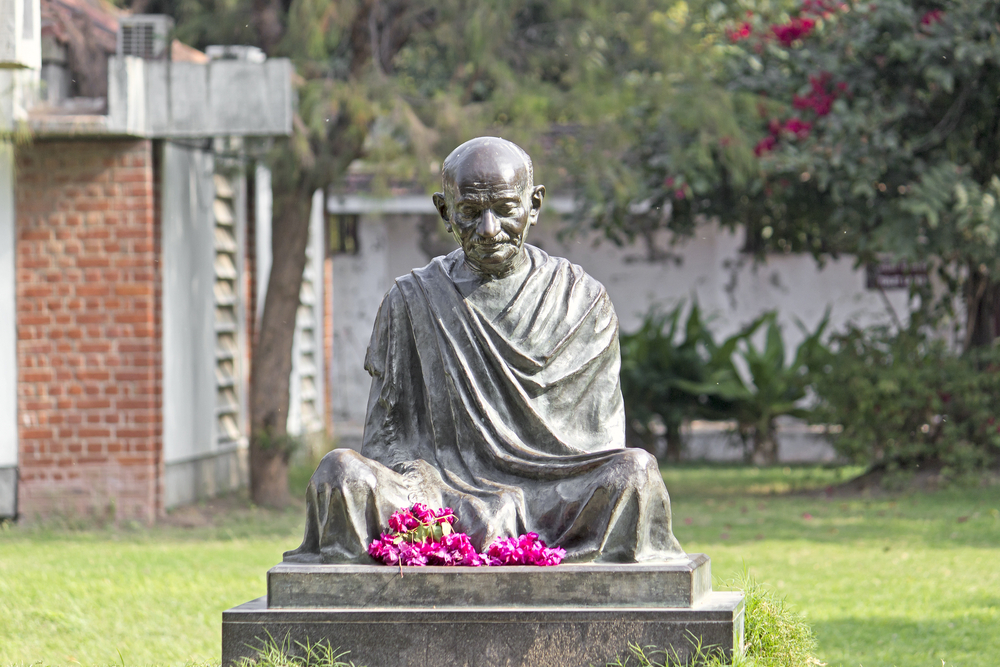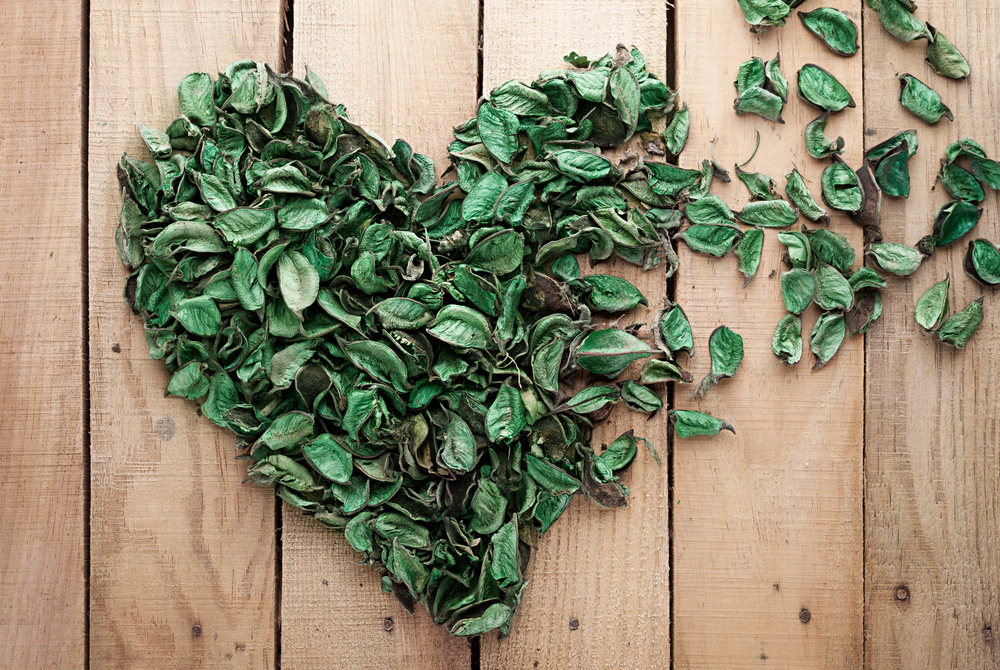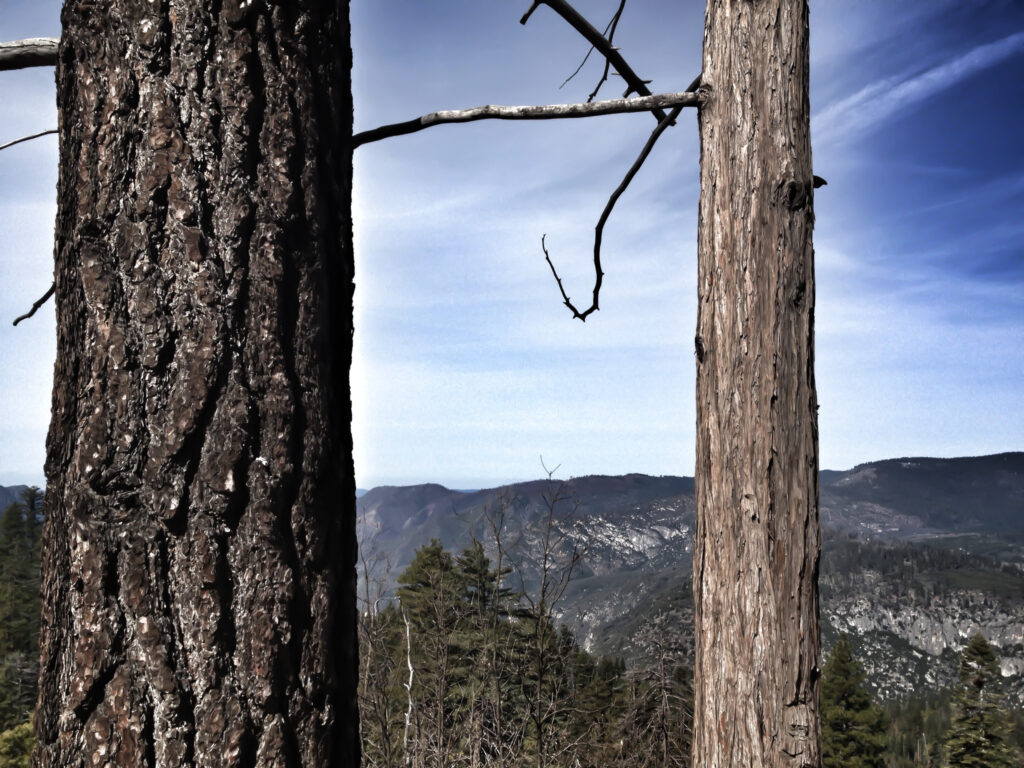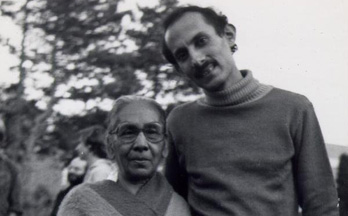Years ago Ram Dass went to his guru, Neem Karoli Baba, to ask, “How can I best be enlightened?” His guru answered, “Love people.” When he asked about the most direct path to awakening, his guru answered, “Feed people. Love people and feed people. Serve the Divine in every form.” Kabir, the Indian mystic, says, “There is only one thing that will satisfy my heart . . . to serve You with every breath.”
Service is the expression of the awakened heart. But whom are we serving? It is ourselves. When someone asked Gandhi how he could so continually sacrifice himself for India, he replied, “I do this for myself alone.” When we serve others we serve ourselves. The Upanishads call this “God feeding God.” A wise spiritual community must serve something larger than itself. If people gather in community primarily to alleviate their own isolation and loneliness, to have their needs fulfilled by others, they become like a group of needy children, and the community inevitably fails. But if their vision and creativity is in service to the sacred, to God, to the larger common good, there is a better chance for a healthy and wise community to grow.
A Sufi master speaks of this need: “When we founded our community we recognized that people came together for social needs, for financial and political needs. We did not want their needs to be the main point of our community. We came together to pray and serve God, to grow in a truly spiritual way, to express some things higher than ourselves. We wanted to imbue every part of life with a holiness, to bring this to shine in the world.”
Past generations in America understood this in ways we have largely forgotten. Our history is filled with examples of communal care for one another, from barn raising to the sharing of food and seeds in times of hunger to churchgoing and spiritual partnership. In times of disaster, there is a remarkable outpouring of mutual aid, across every barrier of class and race. After life is “normal” again, people speak wistfully of wanting to keep the spirit that made everyone neighbors, reminding us of what we can be to one another.
Serving one another is an expression of our sacred connection. It reawakens the oneness that has been lost, allows us to again look into the eyes of another and see the Divine that shines in all things. One senior Buddhist practitioner who regularly does hospice work remembers that she had a stronger connection to her dying patients than to almost anyone else in her life. “At first I thought it was because of their openness in the face of death. But then I realized it was mostly because I do several periods of loving-kindness meditations for them daily. When you intentionally offer your loving wishes, your prayers and blessings for someone over and over, it changes your own heart. You become the love you offer.”
We each are engaged in a multitude of acts of service to our brothers and sisters. Every time we stop at a red light, offer money to a cashier, say hello, wash the dishes, put out the trash cans, we serve our family, our community, and the earth. In each of our daily roles—as builder or merchant, gardener or artist, teacher, healer, secretary, or salesman—we can awaken compassion, we can find the spirit of Sangha and freedom.
“The scope of service,” says the Indian master Meher Baba, “is not limited to heroic acts, great gestures, and huge donations to public institutions. They also serve who express their love in little things. A word that gives courage to a broken heart or a smile that brings hope in the midst of gloom is as much service as heroic sacrifice. A glance that wipes out bitterness from the heart is also service, although there may be no thought of service in it. When taken by themselves all these things seem to be small, but life is made up of many small things. If these small things were ignored, life would not only be unbeautiful, it would be unbearable.”
This excerpt is taken from After the Ecstasy, the Laundry.






